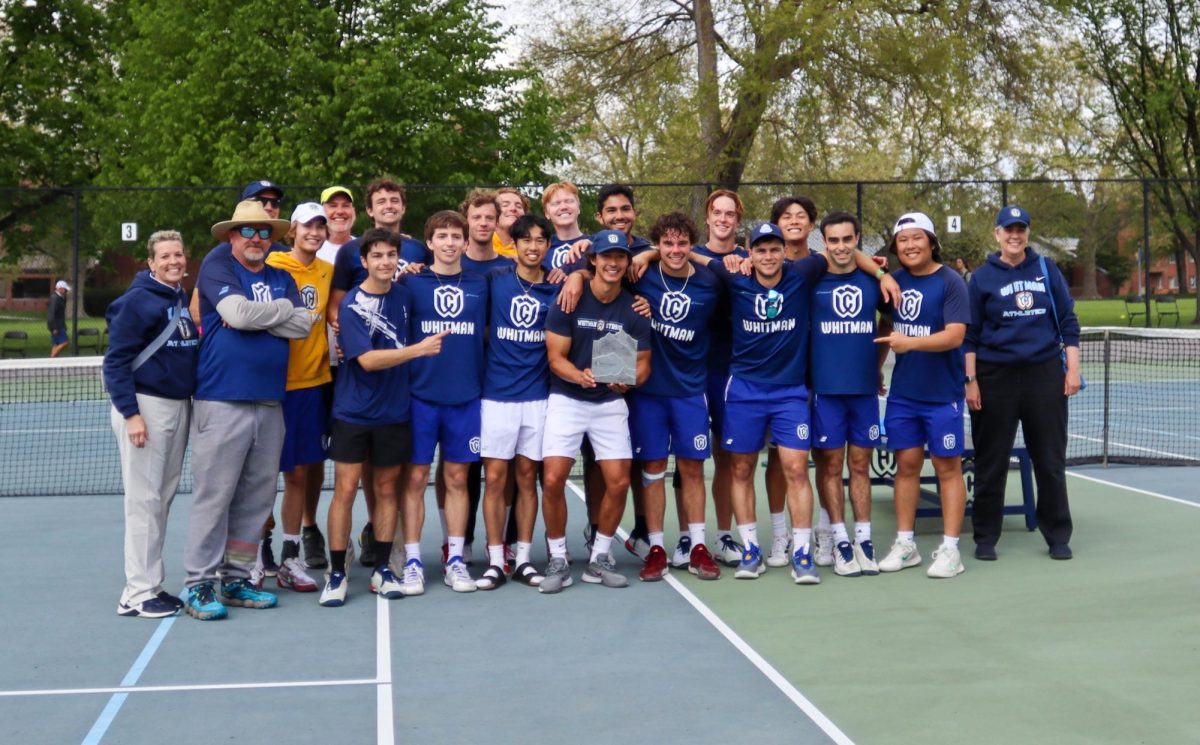With debate about gay rights dominating national politics and rainbow stickers slapped on laptops all over Whitman campus, it is clear that in recent years, Lesbian Gay Bisexual Transgender Queer (LGBTQ) issues have been brought to the front of the American consciousness. As a nation we are moving gradually towards greater social and legal acceptance of all sexual orientations. It is surprising to realize that there are still few professional athletes publicly out as gay, lesbian, bisexual, transgender or questioning: it seems the sports world has been left behind in this national shift in consciousness.
Athlete Ally, a program founded with the purpose of bridging this gap through conversation and action, has reached almost 40 colleges across the nation since its inception less than one year ago and is now being brought to Whitman by a few proactive students. The official website defines an Athlete Ally as “any person”regardless of sexual orientation or gender identity”who takes a stand against homophobia and transphobia in sports and brings the message of respect, inclusion and equality to their athletic community.”
Athlete Ally is spread organically through student initiatives on campuses around the nation and is concentrated near its home in the Northeast.
When I was at grad school at Harvard, they had just started an Athlete Ally group on campus. I think we were one of the first, said Whitman varsity swimming alum and current admissions officer Robert Street.
The program was started by Hudson Taylor, an All-American Division I wrestler and theater major at the University of Maryland who saw the need for greater awareness about LGBTQ acceptance in athletics at all levels. At its most basic, participation in the program consists of signing a pledge that states: “I pledge to lead my athletic community to respect and welcome all persons, regardless of their perceived or actual sexual orientation, gender identity or gender expression. Beginning right now, I will do my part to promote the best of athletics by making all players feel respected on and off the field.”
The purpose of the pledge is to spark thoughtful dialogue among athletic communities and inspire further action supporting LGBTQ acceptance in sports. Whitman is about to become the first college in the Northwest Conference to join the growing number of participating institutions.
I’m incredibly excited [about this coming to Whitman]. I think that this is a good place to create the discussion amongst athletic teams and to help lead the way with other liberal arts colleges in the Northwest, says Street.
Given that the Whitman community is known for its open-minded attitude and progressive values, some may wonder whether a program like this is even necessary. This, as it turns out, may be just the problem.
We have a sort of complacency because people don’t think homophobia is an issue anymore on Whitman campus, so there are a lot of things that fall by the wayside. And that includes homophobia in varsity sports, says swim captain senior Matt Rowett, one of Whitman’s Athlete Ally representatives.
I don’t think that Whitman is an overtly homophobic place at all, says senior ultimate frisbee player Alice Minor, Whitman’s other student Athlete Ally representative. However, latent language and behavior that assumes heterosexuality for both men and women continues to alienate some athletes.
There’s still the kind of language and kind of general consensus about what it means to be an athlete that can kind of build up walls between us, says Minor, referencing the overwhelmingly hetero-normative culture still surrounding athletes.
I’m queer, and I’m an athlete. This is a hard project to describe, but I think it’s really important, says Minor.
We just want to set a precedent to make it something that people talk about. We’re trying to create a conversation, says Rowett.
This conversation is about homophobia in athletics, but is ultimately grounded in elements of respect and tolerance essential in team unity.
We want people to recognize that homophobia in athletics and on the Whitman campus in general is not non-existent; it is still present, and similarly in athletics nation-wide it is a very important issue. We want this conversation to become an important part of team dynamics, says Rowett.
Rowett and Minor plan to meet with student representatives from all varsity sports teams in the coming weeks and hope to spread the discussion to each team through team leaders, coaches and administrators.
I don’t think this is going to be effective if it’s only two people making the push for this; we need the entire campus, the entire athletic department behind us, says Rowett.
Athletic Director Dean Snider has been helping plan Rowett and Minor’s initiative at Whitman. I’m glad to support this cause in any way I can. I would fully expect that our students, our faculty, our staff, our coaches would be glad to be a part of this. I think it can only have a positive effect, says Snider.
The varsity swim team signed the pledge last week after watching an informational video and having a short discussion about the program. The hope is that the discussion Athlete Ally starts among Whitman athletes will eventually spread beyond Walla Walla.
“I hope at Whitman that this creates a dialogue but I hope nationally it really creates this discussion around what comments we’re making, how we use our words and how that affects people’s acceptance of themselves and their acceptance as athletes, says Street.
While this grassroots program has great potential, it won’t be effective unless taken to heart by participants. I want to make sure that we have people do more than sign a piece of paper. It’s exciting; it’s fun to get people talking about something that is so important, says Minor.
For more information, please visit the Athlete Ally website at www.athleteally.com


